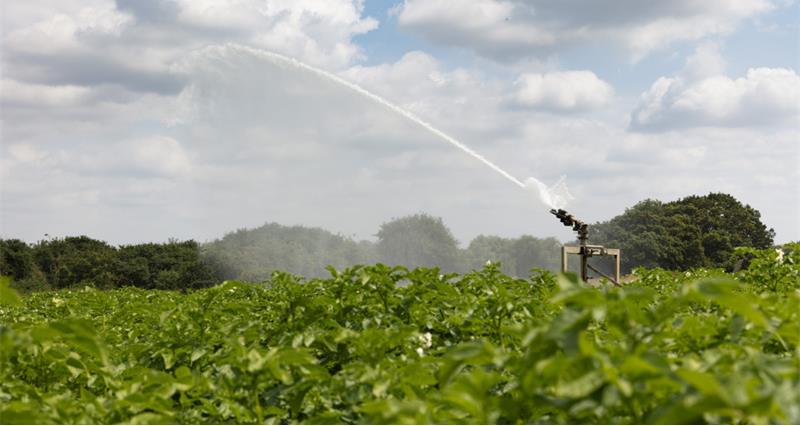More than our fair share of water issues
Since joining the NFU in 2009, the region has experienced more than its fair share of water issues, with very regular flooding and now three droughts that have impacted members, in 2011, 2018 and, of course, 2022.
The blanket hosepipe ban in 2018 was notable in that it was introduced with little warning and demonstrated a total lack of understanding that commercial horticulture businesses rely on hosepipes to keep crops alive.
I look back on that period as a failure of relationships as much as a failure of regulatory procedure. The regulator lacked both understanding of crop production and ways of engaging with farmers to explore different options as the drought worsened which, if employed sensibly, could have protected the environment while keeping crops viable.
For their part, farmers lacked the tools for managing the risks associated with hot and dry weather conditions, and it was hard to produce evidence showing the economic consequences of rigid application of rules.
Things have changed for the better
Much was learned by all sides in those years and we sometimes forget that a great deal has changed for the better. A case in point is this year's hosepipe ban, which now does not affect growers thanks to NFU input into regional water company drought plans.
On farms, we’ve witnessed reservoir construction across the country, designed to capture and store surplus water for use at times of low river flows. Farmers have invested in smart, innovative irrigation equipment and monitoring technology that delivers greater efficiency and sustainability.
We have improved our lines of communication with government agencies and others who have a stake in the water environment, so we can share knowledge and work together on addressing short and longer-term water availability pressures.
Farmers have learned how to get their message across about the importance of water for food production and our need for a fair share of available water, although that remains a challenge given the general perception that food prices should continue to fall while production standards continue to climb.
Coordinated and effective water management is key
The launch of the NFU’s Integrated Water Management Strategy in 2021 was both a major leap forward and an obvious next step in bringing this activity together. After two agricultural droughts in the past four years, interspersed with countless major flooding events, the key surely lies in the coordinated and effective management of both too much and not enough water.
Government seems to be taking seriously the risk of future water shortages arising from a combination of housing growth, climate change and its ambition to protect and enhance the water environment.
Agriculture and horticulture remain a frustratingly low priority when there isn’t enough water to go around, despite a series of recent panics arising from disrupted food supplies and a clear desire from consumers for more home-sourced food on their plates.
Farmers now have a seat at the table
However, we have been handed a significant opportunity to change the narrative on securing a fair share of water since the creation of five regional water planning groups in England. This gives farming a seat at the planning table for the first time, and an opportunity to shape ideas surrounding long term, multi-sector developments to deliver a more resilient water supply for everybody.
The risk we face is that, in seeking to deliver its long terms goals, government will fall short on the significant capital investment needed and will instead focus merely on introducing more stringent regulations that make our access to water more bureaucratic and expensive.
While much progress has been made in recent years, more frequent droughts and floods will present us with even greater challenges in the future. These are challenges that cannot be solved at individual farm level. The solution must lie in developing opportunities to collaborate within farming, and with other sectors. The creation of new and innovative partnerships within our sector, particularly among local abstractor groups, is one welcome development. There is political strength in numbers.

